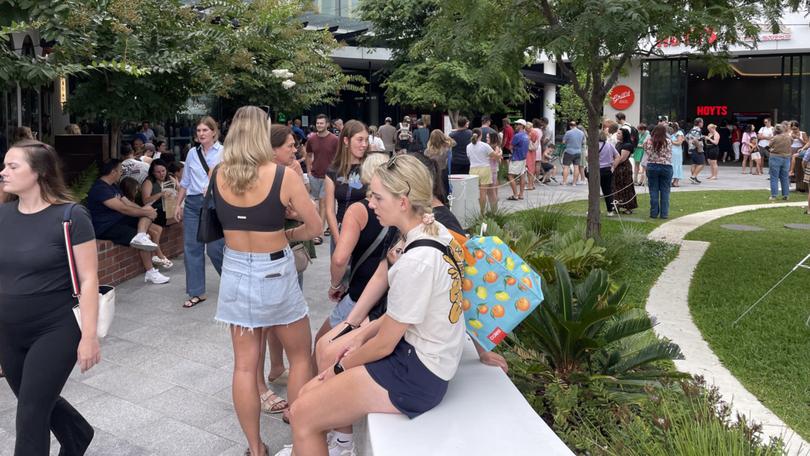Consumer confidence takes another dive as business outlook holds to year-long run of below-average confidence
Businesses are holding on to below-average levels of confidence in the future — despite consumer sentiment sinking further to levels only seen during the recession of the early 1990s.

Businesses are holding on to below-average levels of confidence in the future despite consumer sentiment sinking further to levels only seen during the recession of the early 1990s.
Bank surveys on Tuesday painted a grim picture of Australians’ assessment of their financial standing and the wider economy. Westpac, which has been charting consumer sentiment since the mid 1970s, said this month’s figures marked two years of depressed views — far outstretching most other periods.
“Outside of the deep recession of the early 1990s, this is easily the second most protracted period of deep consumer pessimism since we began surveying . . . with all other sentiment slumps lasting nine months or less,” senior economist Matthew Hassan said.
Sign up to The Nightly's newsletters.
Get the first look at the digital newspaper, curated daily stories and breaking headlines delivered to your inbox.
By continuing you agree to our Terms and Privacy Policy.“The absence of a sentiment recovery to date reflects the nature and duration of Australia’s inflation challenge.”
To combat an inflation rate that peaked at a near three-decade high of 8 per cent in late 2022, the Reserve Bank of Australia from May 2022 began hiking interest rates. Its most recent hike was in November last year, to 4.35 per cent.
Economists expect rate cuts later this year, depending on how the latest economic data bears out. The next test of that is on April 24, when quarterly inflation figures are released. The RBA next determines rates on May 7.
Mr Hassan said consumers remained unconvinced about possible interest rates, with a little over 40 per cent expecting further hikes and only 21 per cent expecting cuts.
He said the tough conditions were being driven by price hikes being 6 percentage points higher than wages growth over the past three years.
“That has combined with a sharp increase in interest rates and a big lift in tax payments putting household incomes under intense, sustained pressure,” he said.
“The whole episode has also been relatively drawn-out as well — inflation still running above the RBA’s 2 to 3 per cent target band three years on and giving little to no scope for either monetary or fiscal policy to provide material support.”
This differed from previous downturns in sentiment because they had typically come from shocks to growth that did not involve inflation and could therefore be resolved by politicians — during the pandemic, the global financial crisis or the early 2000s slowdown triggered by the dot-com bubble burst.
By State, sentiment ticked up in NSW by almost 3 per cent in the month but tanked 8.1 per cent in Queensland.
Business conditions are best in WA and Tasmania, as recorded by National Australia Bank’s monthly survey of the sector, while retail and construction businesses reported improved confidence and conditions — albeit from a lower base.
NAB chief economist Alan Oster said conditions nationally had been a little above average but confidence a little below average for almost a year, a fairly unusual result in the decades of the survey.
“Fundamentally, it tells us that firms have continued to be a bit concerned about the outlook even as the economy has remained resilient,” he said.
“Cost pressures remain elevated but have eased a little more this month, but retail price growth remains elevated. Fundamentally, this aligns with our expectation that progress on bringing inflation back to target will be gradual from here.”
Separately, ANZ-Roy Morgan’s weekly check of consumer confidence fell, while inflation expectations increased. Its measure has been below a benchmark for a record 62 weeks, 23 weeks longer than during the 1990s recession, ANZ economist Madeline Dunk said.
“Inflation expectations rose to the highest level for the year. This may help explain the increased pessimism in the economic and financial outlook,” she said.
“This is the first time since November 2022 . . . that inflation expectations have increased for three weeks in a row. Higher petrol prices may be contributing to this rise.”
